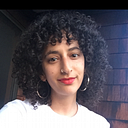The End of Summer in Seattle
We’re nearing the end of summer in Seattle, and apocalyptic rain and lightning storms are clearing the vestiges of August’s warm blackberry air. The sun is setting earlier, and the nights are dipping a little cooler. And like proper Seattleites, we receive these changes ignorantly and blissfully; we stay optimistic that summer will linger through October, we wear shorts even on the seventy degree days, overstuff our schedules with sandwiches of outdoorsy plans and we persevere in making bonfires — even if there are a few showers. Sweet, ephemeral summer bliss. Just like old times.
Those who have spent more than a few years in Seattle know the cycle well. We sit for nine months under a blanket of grey. We stare longingly out of raindrop-streaked windows until the daffodils ring their yellow alarms to tell us, at long last, summer is almost here. And for two or three months (if we’re lucky), we pack in all the joy, nature, and fresh, vibrant produce that we possibly can. Of course, many of us also relish the saturated green coziness of rest-of-year Seattle, but summer has always been a respite. That is, until the last three years.
In the summer of 2017, and then again in 2018, our precious PNW August was engulfed in flames. Caused by conflagrations (both human-caused and natural) across the entire West Coast, the fires wrought havoc and devastation for weeks. We used to be an emerald city full of well-intentioned “granola” people; the ones who would shake our heads in great sadness and contempt while reading of the places without recycling; the places with terrible air pollution; the places poisoning the seas with chemicals and trash.
We ate our local salmon with a tinge of smugness, bragged of our fresh, clean air, celebrated the introduction of a[n admittedly badass] composting program citywide. Seattle seemed like the kind of place that could save the world. As it turns out, this sense of safety, the feeling that in this liberal bubble we could be impervious to the ills of the world, was little more than a pipe dream.
When the wildfires ravaged our air, our beloved mountains and our precious summer, it wasn’t an anomaly. The earth is heating up, and the Pacific Northwest is no exception. Human-caused climate change is an irrefutable, though inconvenient truth. Our time to slow down the rate of climate change is rapidly disappearing.
Yet, in true Seattle liberal fashion, many of us seem intent on business as usual (extra emphasis on the “business” part). We ignore the projects happening in our own backyard that perpetuate these issues — new fossil fuel pipeline proposals, Amazon’s abysmal shipping emissions, overfishing and poisoning of water causing shortages of fish and starving orcas — all while we look on, eating organic poke. Passing a Green New Deal in Seattle is a great start, but it’s not enough. Too few of us are standing up for what’s right.
I encourage everyone to take a stand on September 20th, joining human beings across the world for a day of global climate strike, led by a coalition of truly remarkable kids. It’s nearly end of summer, and while this one didn’t go up in smoke, many of us know that something’s not quite the same anymore. Trees changed color prematurely. Blooms have been inconsistent with what they once were. Plants conducive to hotter climates are more pervasive across the region. Our summer of eighty-five-degree days started in April and May, and this is not normal.
We are running out of time to keep the warming of the earth under 1.5 degrees Celsius; the results of this will be catastrophic and global. Every single one of us will by impacted by this. For our children, for their children, for every being that will ever exist on this earth, the time is now. So gather your blackberries, make some jam to last through the grey. And on September 20th, we strike.
For more information about the Global Climate Strike on September 20th, check out https://globalclimatestrike.net
— — — — — — — — — — — — — — — — — — — — — — — — — — — — — —
Additional Resources/What You Can Do:
I highly recommend Bill MckKibben’s brilliant book Falter for those looking to better understand the current situation with climate change and where we go from here.
If you’d like to get involved in local environmental organizing, check out the following organizations:
· 350 Seattle (Not in Seattle? No problem! 350.org is an international environmental justice organization so you can get involved anywhere)
· Mazaska Talks (an Indigenous-led organization featuring the voices of those who are some of the most directly and devastatingly impacted by climate change in the region)
· Protectors of the Salish Sea (another Indigenous-led coalition focused on environmental justice, especially regarding pipelines and water protection)
